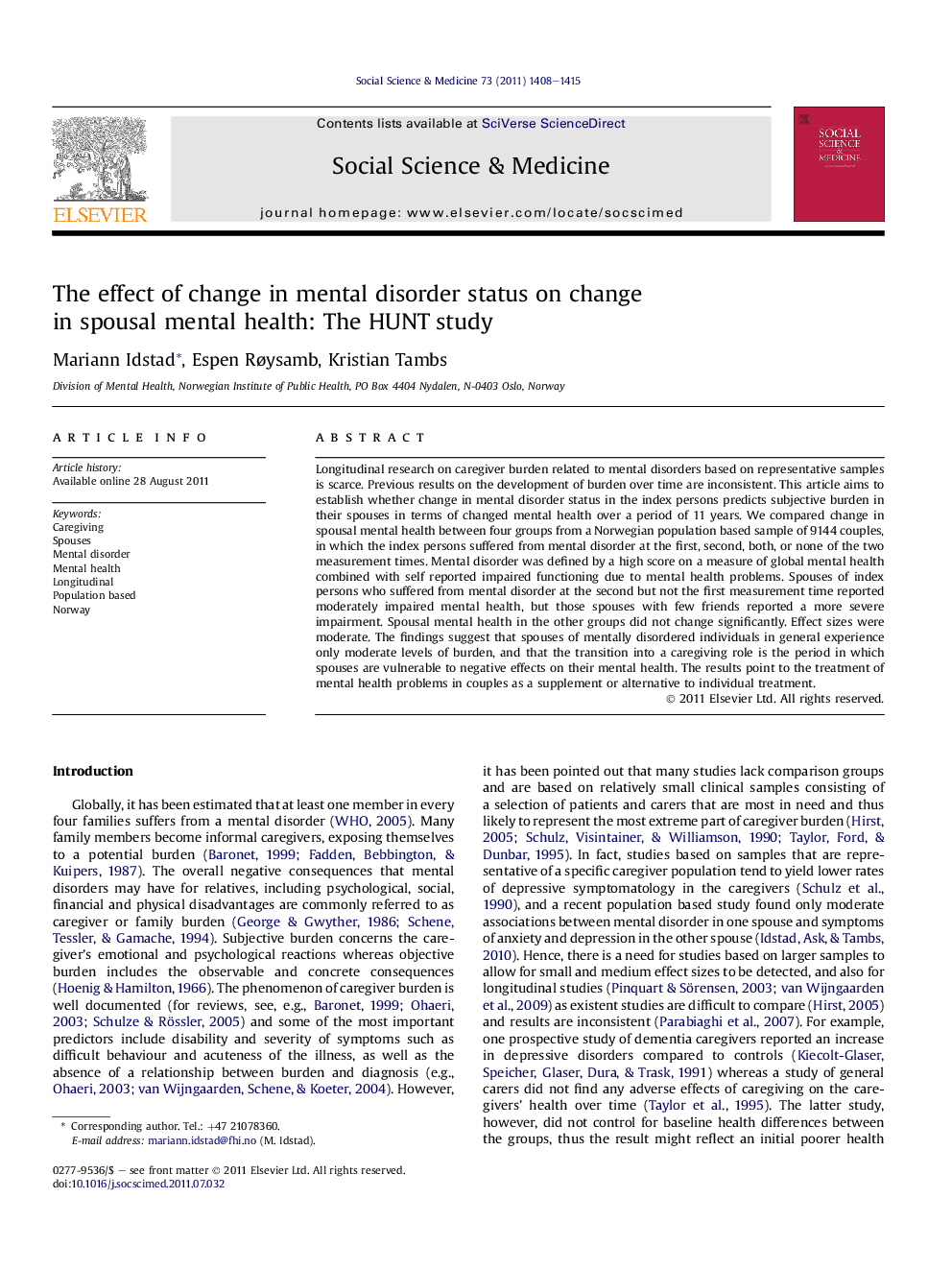| Article ID | Journal | Published Year | Pages | File Type |
|---|---|---|---|---|
| 952802 | Social Science & Medicine | 2011 | 8 Pages |
Longitudinal research on caregiver burden related to mental disorders based on representative samples is scarce. Previous results on the development of burden over time are inconsistent. This article aims to establish whether change in mental disorder status in the index persons predicts subjective burden in their spouses in terms of changed mental health over a period of 11 years. We compared change in spousal mental health between four groups from a Norwegian population based sample of 9144 couples, in which the index persons suffered from mental disorder at the first, second, both, or none of the two measurement times. Mental disorder was defined by a high score on a measure of global mental health combined with self reported impaired functioning due to mental health problems. Spouses of index persons who suffered from mental disorder at the second but not the first measurement time reported moderately impaired mental health, but those spouses with few friends reported a more severe impairment. Spousal mental health in the other groups did not change significantly. Effect sizes were moderate. The findings suggest that spouses of mentally disordered individuals in general experience only moderate levels of burden, and that the transition into a caregiving role is the period in which spouses are vulnerable to negative effects on their mental health. The results point to the treatment of mental health problems in couples as a supplement or alternative to individual treatment.
► More than 9000 couples taken from a population-based sample were followed longitudinally. ► Spouses exposed to a new caregiver burden associated with mental disorder in their partners reported impaired mental health. ► Spouses exposed to an old or continued burden did not report any change in mental health.
